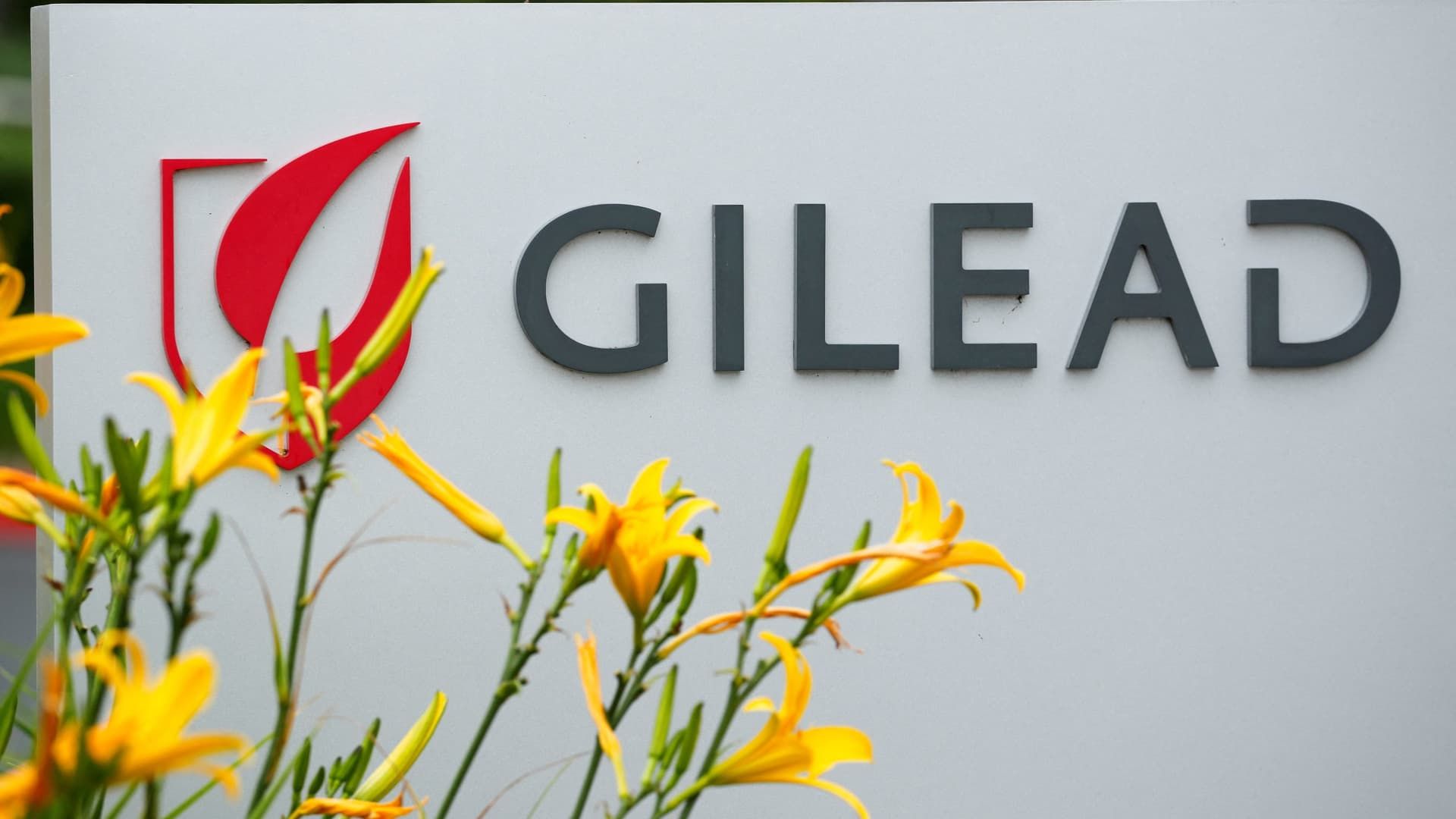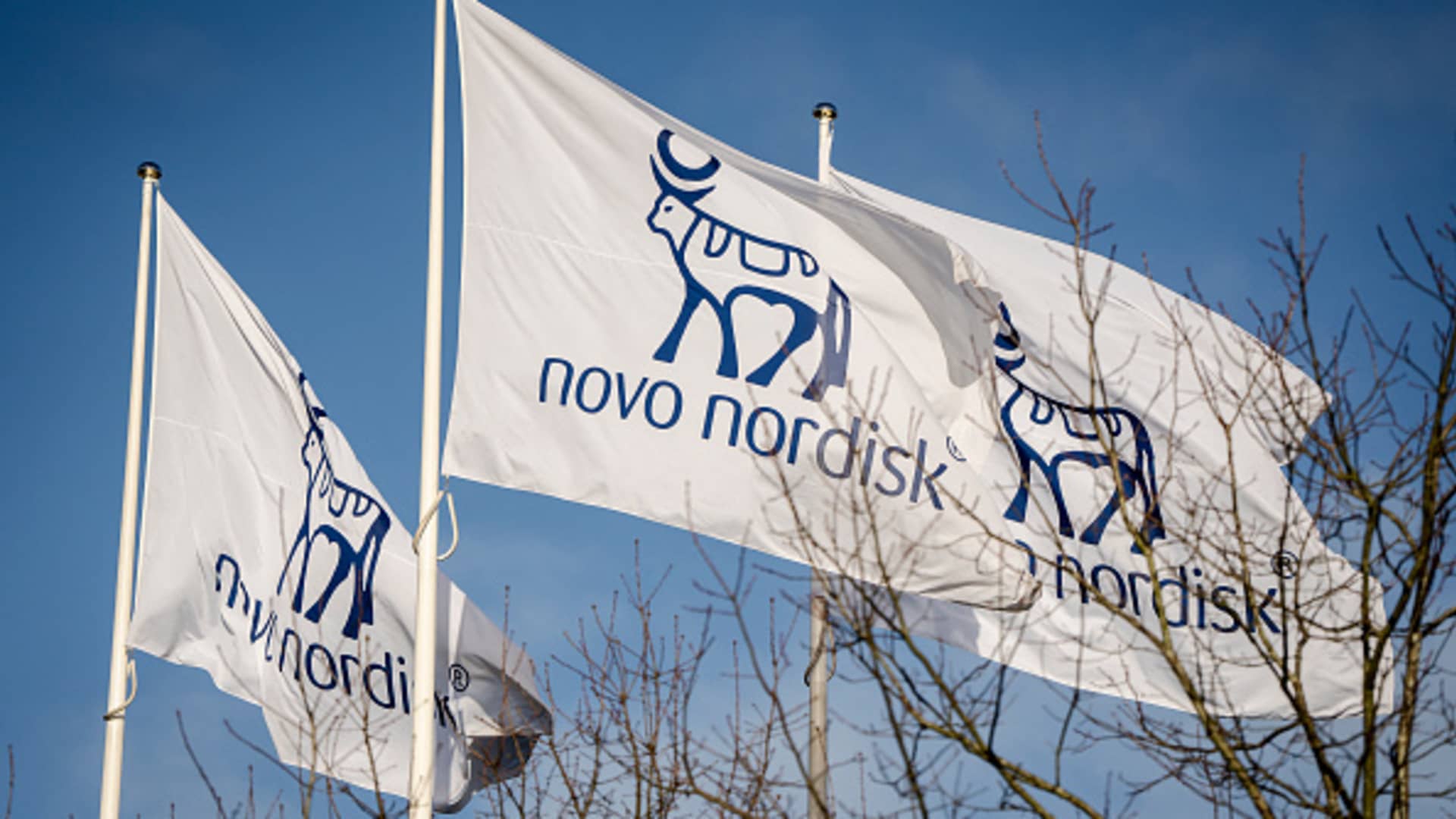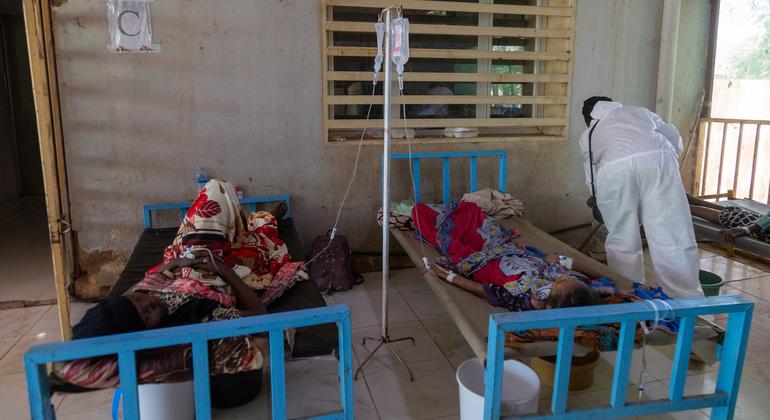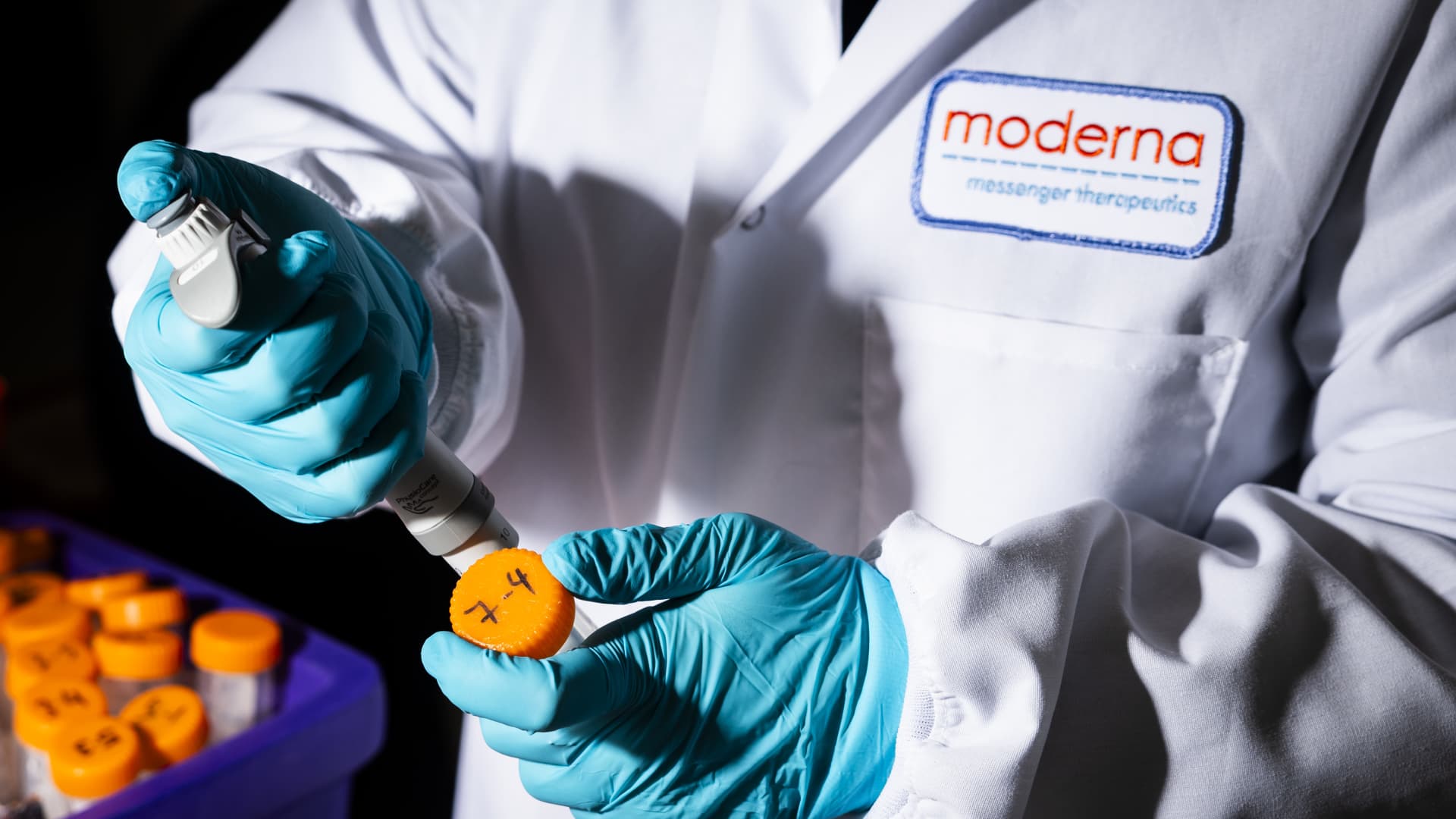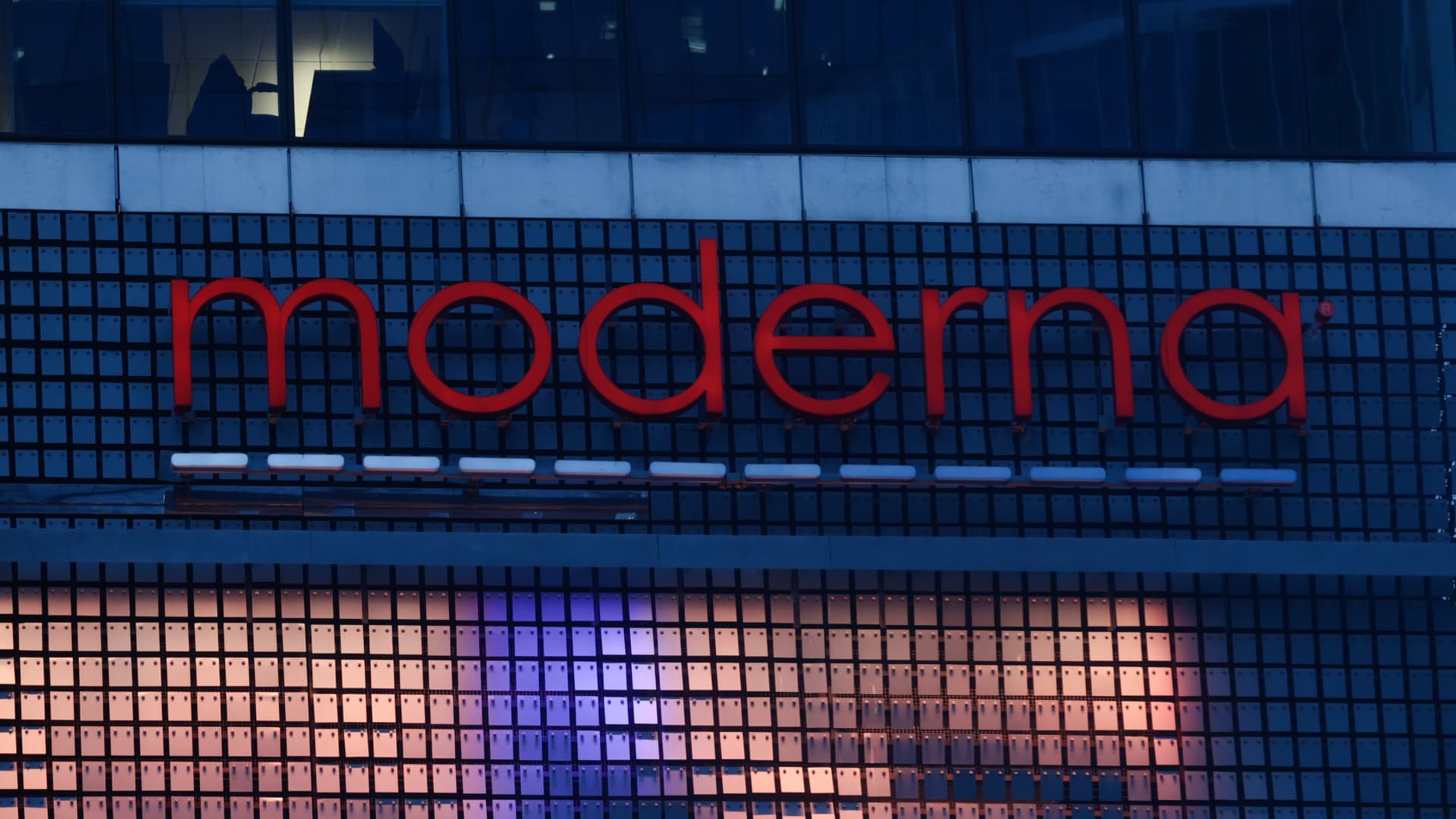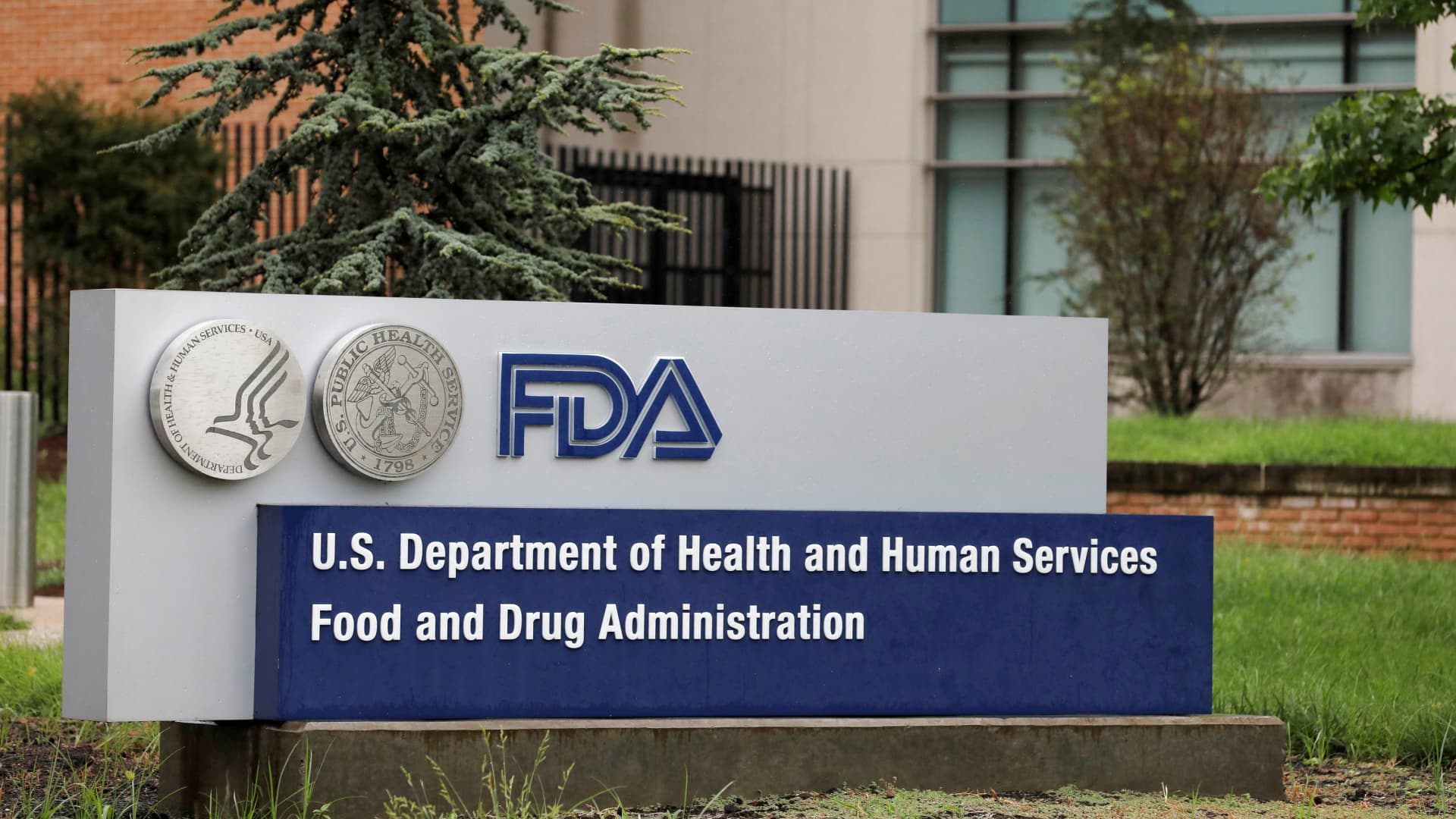The logo of the pharmaceutical company Gilead Sciences in Oceanside, California, on April 29, 2020.
Mike Blake | Reuters
GileadThe experimental drug given twice a year to prevent HIV was 100% effective in a late-stage trial, the company said Thursday.
None of the approximately 2,000 women in the trial who received Gilead's lenacapavir injection had contracted HIV according to an interim analysis, prompting the independent data monitoring committee to recommend Gilead unblind the Phase 3 trial and offered the treatment to all study participants. Other participants had received standard daily pills.
The results bring Gilead closer to introducing a new form of pre-exposure prophylaxis, or PrEP, and expanding its HIV business. The company's shares rose about 7% in Thursday.
“What the world needs is for people to have more PrEP options so they can choose the option that works best for them,” said Jared Baeten, vice president of HIV clinical development at Gilead.
Before seeking FDA approval, Gilead will first need to replicate these results. The company expects to share data from an ongoing Phase 3 study of men who have sex with men later this year or early next year. If these results are positive, the company could launch lenacapavir for PrEP on the market at the end of 2025.
More than a decade ago, Gilead's Truvada became the first PrEP approved for people without HIV who are at high risk for HIV. Daily pills dominate the market, but drug makers are now focusing on developing longer-acting injections.
PrEP dramatically reduces the risk of contracting HIV through sex by 99% and from injection drug use by 74%, when taken correctly. However, only a little more than a third of people in the United States who could benefit from PrEP take it, according to data from the Centers for Disease Control and Prevention.
Health policy makers and advocates hope Longer-acting options could reach people who can't or don't want to take a daily pill and better prevent the spread of a virus that caused about 1 million new infections worldwide in 2022.
“It's really important to have more options than daily pills because oral pills are not going to get us to the end of the epidemic,” said Bruce Richman, founding executive director of the nonprofit Prevention Access Campaign. “We need to make sure people have options that fit their lifestyles.”
The FDA approved the first injectable PrEP in 2021. That medication, Apretude, is administered by a medical professional every two months, or six times a year. About 11,000 people take Apretude, according to its manufacturer, ViiV.
Tim Oliver, a 28-year-old public health worker in New York, doesn't mind going to the doctor for Apretude injections. But he says some of his friends have told him they would rather continue taking a daily pill than get a shot. A longer-acting option could be more attractive to patients.
RBC Capital Markets analyst Brian Abrahams expects Gilead's shot to significantly increase the number of people interested in HIV preventive medicine. He estimates peak sales will be nearly $2 billion. Gilead's new PrEP pill, Descovy, posted revenue of about $2 billion last year.
Campaigners have urged Gilead to ensure that people in low- and middle-income countries can access lenacapavir. The company has long faced criticism over the pricing of its HIV drugs. Descovy has a list price of $26,000 per year.
In its statement releasing the lenacapavir trial results on Thursday, Gilead said it plans to share an update on how it plans to reach countries with limited resources and high HIV incidence rates.
-CNBC Leanne Miller contributed to this report.

